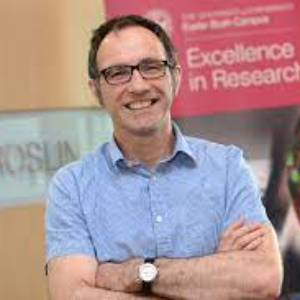Title : Source attribution of foodborne bacterial pathogens using machine learning approaches
Abstract:
Foodborne pathogens continue to be a major threat to human health and threaten the viability of particular foods and major outbreaks have profound economic and social consequences. At Food Standards Scotland (FSS), we work with academic, commercial and public health partners to keep food safe and this includes instigating and supporting genomic studies on bacterial isolates associated with human infections from food or drink such as Salmonella, E. coli and Listeria. A key target is accurate source attribution i.e. prediction of animal and/or geographical origins of such pathogens based on their whole genome sequence and there have been a number of groups applying machine-learning (ML) methods to improve what we can predict about both the source and infection threat of an isolate based on its genome sequence. As with all ML approaches, there is the need to have as much high-quality input training data as possible on which to build the models.
At FSS we have had a historical focus on source attribution for Campylobacter and Shiga toxigenic E. coli and are currently involved in projects focused on Salmonella Typhimurium and Escherichia coli isolated from human, cattle, pigs and poultry with three main aims:
(1) to predict the likely animal source of any human or food isolate;
(2) to predict the infection threat to humans of an isolate from an animal or food source;
(3) to identify the genetic elements more likely to be associated with particular hosts.
The presentation will introduce the main research in this area and our main findings about the accuracy of the methods and how it can be applied to enhance food safety and public health.



